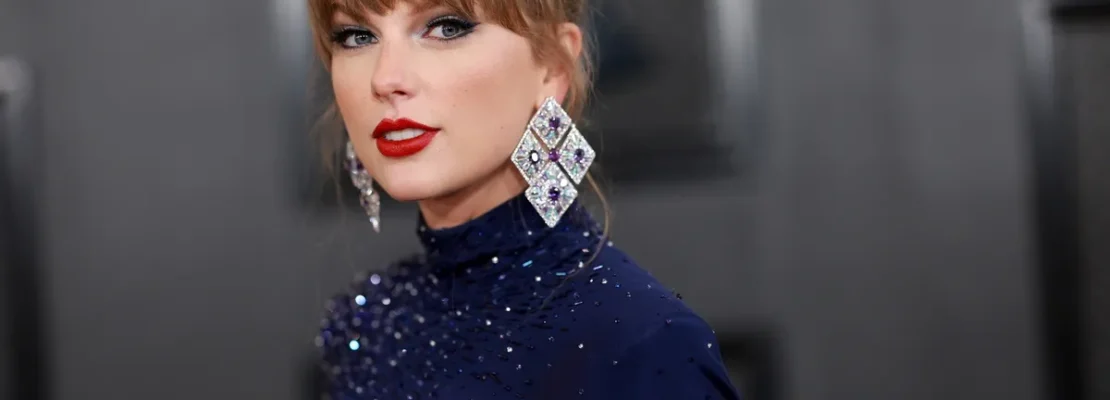Last updated on December 30th, 2025 at 03:52 pm
Have you noticed Instagram profiles filled with endless selfies, perfectly curated images, and grandiose captions that leave you feeling drained? Research shows these aren’t random behaviors; they often signal narcissism. Studies in Narcissism and problematic social media use: A systematic literature review confirm that social media profiles reflect actual personality traits rather than idealized versions of self. On Instagram, narcissists typically showcase luxurious lifestyles and seek excessive validation through likes and comments.
Interacting with a narcissist on Instagram creates an emotional maze. They initially charm with their perfect persona, but gradually you’ll find yourself questioning your worth. This confusion is strategic, not accidental. These individuals use social media specifically to bolster their self-esteem and manipulate others. Behind their carefully crafted façade lies a fragile ego and fear of exposure.
This post breaks down the specific patterns in narcissists’ Instagram feeds that go beyond normal social media use. You’ll learn to identify warning signs before they impact your well-being.
TL;DR
Narcissists post excessive selfies with grandiose captions demanding admiration.
They obsess over follower counts while lacking genuine connections.
Their feeds show zero vulnerability and constant achievement highlights.
They exhibit no empathy in comments and redirect attention to themselves.
They use manipulative tactics like follow/unfollow schemes for validation.
Why It’s Important to Identify Narcissists on Instagram
Instagram, also being a place where the eyes are getting more pleasure and also the human desire is easily satisfied is such a safe place for these kinds of people who are engaged in this type of behavior.
The app can be very self-promoting with its focus on likes, aesthetics, and followers matching the narcissist’s demands for attention and admiration. Would you believe that the profiles you stumble upon appear to be the idols who are perfect to the utmost or they are too much of a selfie? For all we know, these are the digitals of a narcissist.
21 Indicators On How to Spot a Narcissist on Instagram
1. Excessive Selfies and Self-Centered Photos
One of the most obvious signs of narcissism on Instagram is an overwhelming abundance of selfies and self-centered photos. While it’s normal for people to share pictures of themselves occasionally, narcissists take this to an extreme level. Their feed becomes a shrine to their own image, with every post revolving around their appearance, achievements, or lifestyle.
2. Grandiose and Arrogant Captions
Narcissists on Instagram often accompany their photos with captions that scream self-importance and superiority. These captions go beyond normal self-confidence and veer into the realm of grandiosity. They might use phrases like “Too hot to handle,” “The most interesting man in the world,” or “Bow down to your queen.”
3. Oversharing Personal Details for Sympathy
Narcissists often use Instagram as a platform to garner sympathy and attention by oversharing personal details. They may post long, emotional captions about their struggles, health issues, or personal conflicts. While sharing personal experiences can be a genuine way to connect with others, narcissists exploit this for their own gain.
These posts are often exaggerated or manipulated to make the narcissist appear victimized or heroic. For instance, they might share a story about a minor inconvenience as if it were a life-altering tragedy, accompanied by a selfie of them looking distressed. The goal is to elicit a flood of supportive comments and messages, feeding their need for attention and validation.
4. Constant Comparison to Others
Narcissists on Instagram are constantly sizing themselves up against others in their feeds. They may make snide comments comparing their pictures, likes, or followers to people they know in real life or even celebrities and influencers. This behavior stems from their deep-seated insecurity and need to feel superior.
5. Follower Obsession and Lack of Real Connections
A telltale sign of a narcissist on Instagram is their obsession with follower count and engagement rates, coupled with a lack of genuine connections. These individuals view their followers as a measure of their worth and popularity, often going to great lengths to increase their numbers.
You might notice them employing tactics like:
- Following and unfollowing large numbers of accounts to gain reciprocal followers
- Using excessive hashtags to increase visibility
- Frequently checking their follower count and like count
- Making posts begging for follows or engagement
6. Excessive Use of Filters and Editing
Narcissists on Instagram often rely heavily on filters, editing apps, and other tools to manipulate their photos and hide any perceived flaws or imperfections. While it’s common for users to enhance their photos to some degree, narcissists take this to an extreme level.
Their photos often appear overly polished or artificial, with effects that are distracting or unrealistic. Look for signs of heavy retouching, such as:
- Blurred lines or distorted backgrounds
- Unnaturally smooth skin texture
- Dramatically altered facial features
- Inconsistent lighting or shadows
7. Lack of Vulnerability and Authenticity
One of the most striking characteristics of a narcissist’s Instagram profile is the absence of genuine vulnerability or authenticity. Their feed is carefully curated to portray an image of perfection, with little to no room for real-life struggles, flaws, or ordinary moments.
You won’t find candid, unfiltered shots or posts about personal challenges or failures. Instead, every image and caption is designed to reinforce their idealized self-image. This lack of authenticity can make their profile feel hollow and disconnected from reality.
8. Frequent Posts Highlighting Achievements
Narcissists love to showcase their achievements, no matter how small, on Instagram. Their feed will be filled with posts highlighting their successes, awards, job promotions, fitness goals, material purchases, and lavish lifestyle. While it’s natural to share good news occasionally, narcissists take this to an extreme.
9. Lack of Empathy in Posts and Comments
A crucial sign of narcissism on Instagram is a noticeable lack of empathy in both posts and comments. Narcissists struggle to genuinely connect with others’ emotions or experiences. This manifests in several ways on their Instagram profiles:
- They rarely share or engage with content that doesn’t directly relate to them.
- Their comments on others’ posts are often superficial or self-centered, redirecting attention back to themselves.
- They show little interest in their followers’ lives or struggles, unless it provides an opportunity for self-promotion.
10. Overly Emotional Captions and Quotes
Narcissists often use overly emotional captions and quotes to hint at inner turmoil or depth. These posts are designed to make the narcissist appear complex, misunderstood, or profoundly insightful. Look for captions with excessive exclamation points, dramatic language, and vague references to personal struggles.
For example:
- “Another sleepless night… the challenges never end. But I will persevere!”
- “They said I’d never make it. But look at me now!”
- “The world may not understand me, but my true followers always will.”
11. Excessive Use of Instagram Stories and Live Videos
Instagram Stories and Live videos provide narcissists with immediate gratification and attention. They often overuse these features, posting incessantly throughout the day about even the most mundane aspects of their lives. This behavior stems from their constant need for attention and validation.
Watch out for users who:
- Post multiple stories every day, often with little substantial content
- Go live frequently, often without a clear purpose other than to gain attention
- Use interactive features like polls or questions, but only to gather compliments or validation

12. Difficulty Handling Rejection or Being Ignored
Narcissists struggle immensely with any form of rejection or perceived neglect on Instagram. This manifests in several ways:
- They may delete posts that don’t receive enough likes quickly enough
- They might repost content at different times, hoping for better engagement
- They often react defensively or aggressively to critical comments
13. Using Instagram as a Platform for Personal Attacks or Bullying
While not all narcissists engage in outright bullying, many use Instagram as a platform for subtle personal attacks or passive-aggressive behavior. This can take various forms:
- Posting vague statuses that hint at conflicts with unnamed individuals
- Sharing memes or quotes that are clearly directed at someone, without naming them
- Making backhanded compliments on others’ posts
14. Constant Updates About Their “Fabulous” Life
Narcissists on Instagram often provide a constant stream of updates about their seemingly perfect life. Every aspect of their day is portrayed as exciting, luxurious, or enviable. From fancy meals to exotic vacations, designer purchases to celebrity encounters, their feed is a non-stop highlight reel.
However, this “fabulous” life is often exaggerated or entirely fabricated. Narcissists may:
- Stage photos to make ordinary locations look exotic
- Borrow or rent luxury items for photoshoots
- Exaggerate their connections to celebrities or influential people
15. Lack of Interest in Others’ Content
A key indicator of narcissism on Instagram is a noticeable lack of interest in others’ content. Narcissists are so focused on themselves that they rarely engage meaningfully with posts from their followers or even close friends. This behavior manifests in several ways:
- They rarely like or comment on others’ posts unless it’s someone they want to impress
- When they do comment, it’s often to redirect attention back to themselves
- They don’t share or promote content from others, even close friends or family
16. Displaying Envy Towards Others’ Success
Narcissists often struggle with feelings of envy when confronted with others’ success or happiness on Instagram. This envy can manifest in various ways:
- Making passive-aggressive comments on posts about others’ achievements
- Attempting to one-up others by posting about their own similar (but supposedly better) experiences
- Downplaying or dismissing others’ successes
17. Manipulative Tactics to Gain Followers
Narcissists often employ manipulative tactics to increase their follower count and engagement. Some common strategies include:
- Follow/Unfollow: They follow hundreds of accounts only to unfollow them later, hoping to gain reciprocal followers.
- Engagement Baiting: They create posts specifically designed to provoke responses, such as controversial statements or vague hints about personal drama.
- Giveaways and Contests: While these can be legitimate marketing strategies, narcissists often use them solely to boost their numbers without delivering on promises.
18. Excessive Use of Hashtags
While hashtags are a normal part of Instagram use, narcissists often take them to an extreme. They may use dozens of hashtags on a single post, many of which are only tangentially related to the content. This behavior is driven by their desperate need for attention and visibility.
Common hashtag behaviors of narcissists include:
- Using trending hashtags regardless of relevance
- Creating personal hashtags and overusing them
- Using an excessive number of self-promotional hashtags
19. Frequent Posts During Times of Seeking Validation
Narcissists often increase their posting frequency during times when they’re particularly seeking validation. This might include:
- Weekends and holidays when they feel others are having fun without them
- Late at night when they’re feeling lonely or insecure
- After a personal setback or failure they’re trying to compensate for

20. Using Social Causes Disingenuously
While many people use their Instagram platforms to genuinely support important social causes, narcissists often co-opt these issues for self-promotion. They may:
- Post about trendy social issues without any real commitment or understanding
- Share photos of themselves at protests or charity events, focusing more on their presence than the cause
- Use hashtags related to serious issues to gain visibility for unrelated posts
21. Lack of Long-term, Genuine Relationships in Photos
Spotting the red flags of narcissism extends beyond just online behavior. On Instagram, one telling sign is the lack of long-term, genuine relationships visible in their photos. Narcissists often struggle to maintain deep, meaningful connections due to their self-centered nature.
Pay attention to:
- A lack of photos with the same friends over time
- Absence of family photos or mentions of close relationships
- Constantly changing romantic partners in photos
Conclusion: Navigating Instagram with Awareness
As we’ve explored the various signs of narcissism on Instagram, it’s clear that social media can be a complex landscape to navigate. This comprehensive guide to Narcissistic Personality Disorder provides deeper insights into the psychology behind these behaviors.
Remember, the goal isn’t to diagnose or label others, but to cultivate awareness and promote healthier online interactions. By understanding the signs of narcissism on Instagram, we can:
- Protect our own mental health and self-esteem
- Engage more authentically with others
- Use social media in ways that truly enrich our lives
- Foster online communities based on genuine connection and mutual support
Frequently Asked Questions
How Can You Identify Narcissistic Behavior Through Instagram Selfies?
Excessive selfie posting is a common indicator of narcissistic behavior on Instagram. According to a study published in Personality and Individual Differences, individuals who post more selfies tend to score higher on narcissism scales. These users often spend considerable time editing their selfies to present an idealized version of themselves. They may use multiple filters, adjust lighting, and even alter their physical appearance digitally.
What Are Some Red Flags In Instagram Captions That Suggest Narcissism?
Instagram captions can be a goldmine of information when it comes to spotting narcissistic traits. Psychology Today notes that narcissists often use language that emphasizes their superiority or uniqueness. Look for captions that consistently brag about achievements, possessions, or relationships without acknowledging others’ contributions.
How Does A Narcissist’s Instagram Profile Differ From A Regular User’s?
A narcissist’s Instagram profile often stands out due to its carefully curated and attention-grabbing nature. Social Psychological and Personality Science published a study showing that narcissists tend to choose more physically attractive and self-promoting profile pictures. Their bios are likely to be filled with boastful statements, impressive-sounding job titles, or lists of achievements.
What Role Do Instagram Stories Play In Identifying Narcissistic Traits?
Instagram Stories provide a unique window into narcissistic behavior due to their ephemeral nature and interactive features. Cyberpsychology, Behavior, and Social Networking published research suggesting that narcissists use Stories more frequently and in specific ways that feed their need for attention and admiration.
